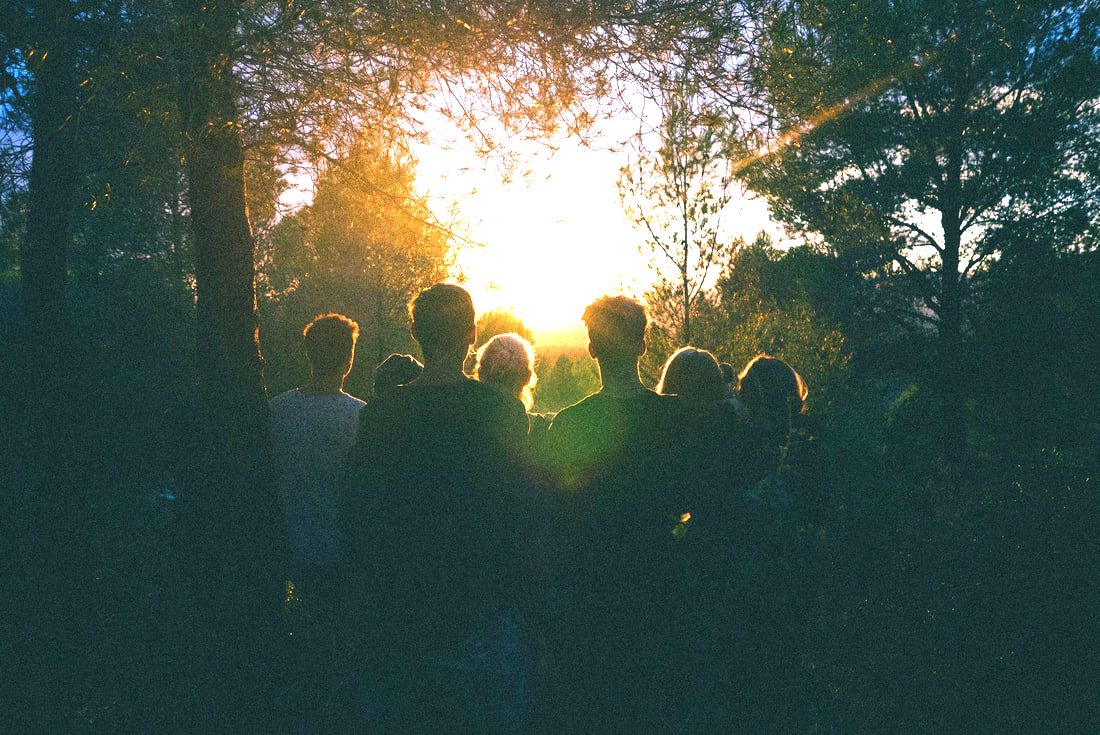|
Today we find ourselves at an exciting time in history. The digital revolution has dramatically changed the world and continues to do so at a frantic pace. Unfortunately, many people haven’t yet realized the scope of what’s going on. We’re in the midst of the second greatest Renaissance in the history of the world! Never before have we seen such upheaval and rapid change than that of the digital age. However, before we explore how the digital age is swiftly destroying the effectiveness of our traditional education system, let’s look back at the last Renaissance which took roughly 300 years to run its course.
From the 14th Century onwards, a radical shift in thinking occurred in Europe. Rather than just mindlessly stabbing each other with swords, knowledge was emerging as power. This social and cultural ‘rebirth’ which started in Italy, was driven by powerful families such as the Medici who sought out ancient texts from Greece, Rome and the Middle East. From this came different ways of thinking and monumental shifts in Art and Culture that transformed the world. A form of education known as Humanism reintroduced philosophy, poetry and progressive thinking to a Europe that was still emerging from the dark ages. The result was that now, nation states had more intelligent and well-educated people who could crack a witty joke before stabbing you with their sword. Unlike today, during the Renaissance, England was in the process of exiting Europe after the 100 Years War, Russia had a slightly aggressive foreign policy stance and there was conflict in the Middle East. It was a time when the world was flat, the sun revolved around the earth and the printing press had just been invented. The Chinese had already invented similar mass production printing approximately 600 years earlier, but we shouldn’t let the facts get in the way of a good European story! Legendary artists such as Leonardo Da Vinci and Michelangelo were busy sculpting and painting naked frescoes all over the Vatican. However, the Council of Trent in 1564, decided that nudity was shockingly unnatural and consequently employed another artist, Daniele da Volterra to take his paint brush to the shocking nudes and paint underpants on them, thus ending the constantly whispered sniggers of blushing visiting nuns. Let’s now race ahead to the 18th and 19th centuries to the next period of massive upheaval, known as the Industrial Revolution. This was a time when Britannia ruled the waves, the Prussian government had just limited the working week for children to 51 hours and everyone was smart enough to realise that ‘clean coal’ was complete nonsense. Jobs were being lost to automation and children were far better at using new steam powered technology than their Luddite parents. From steam trains to ships and cotton mills, everything in England was being exponentially scaled up, including the mass production of education. In 1833, the British Government passed the Factory Act, making it compulsory for children in factories to receive two hours of education a day. By 1880, it was compulsory for children up to the age of 10 to go to school and in 1902 a system of secondary schools was established. Thus the ‘modern’ education system was born most of which still remains in place today. Born from the dark satanic mills of Industrial England, the world of 1902 is a far cry from the world of 2018! However, what’s both exciting and worrying at the same time is the fact that the world of 2030 can, and most likely will, be vastly different from today. The first Renaissance took around 300 years to run its course. However, in the next 10 - 15 years, we face an enormous challenge as the digital tsunami of change bears down upon us! To be honest, teenagers being able to use snapchat to communicate has not been a huge leap for mankind. Despite the average teen’s ability to play with technological devices that have more processing power in them than the first moon landing, this has done little to prepare them for the change that’s upon us. According to a recent Four Corners report, over 5 million jobs will either disappear or be significantly restructured over the next 10 - 15 years, which is around 40% of the entire Australian workforce. We’re not talking 100 years. We’re not talking generational change over 50 years. We’re talking 10 Christmas’ dinners away and almost half the jobs in Australia will have permanently changed! Where does that leave us as educators? To put it into a school context, for those of you who lead a K-12 school, the students who are now in Kindergarten will be graduating into a vastly different social and economic world. Businesses are automating every single process they can to reduce the need for and cost of human labour, as well as leveraging emerging technologies such as AI (Artificial Intelligence) and robots that can learn. Consequently, many ‘white collar’ jobs are now disappearing. How do we address the new reality that’s bearing down upon us faster than a handshaking, baby-kissing politician on election day? Do we A) stick some more computers and a robot in a classroom and hope a bit more eLearning ‘fixes’ it? Or B) radically shift our thinking and approach, to prepare staff and students for a rapidly changing world? For me, the only answer is B). However, the radical shift, is basically not so radical after all and something which was originally suggested over 100 years ago by Kurt Hahn and John Dewey that learning through experience and reflection is the best educational approach to help prepare students for the challenges and complexities of life. After watching the Four Corners episode, I decided to start my research project and learn how other experiential educators are addressing the tsunami of change. Since podcasts are trendy right now, what better way than to create a podcast about experiential education? Turns out, it’s a great way to meet interesting people and learn from their experiences. Added to this, I love to try new things and it’s something I’ve always encouraged staff and students, to do! If we’re not living somewhat outside our comfort zones, we’re not living much at all. When I recently jumped in the deep end and created Xperiential Education (the podcast), it was not only a new experience, but a challenging one into which I had to put a lot of thought, time and energy to make it work. From this, a really valuable picture emerged of shifts in education, preparing students for an unknown future. As an outdoor education teacher, the first episode was all about outdoor education and I travelled to New Zealand to Tihoi Venture School near Lake Taupo where I spoke with the Director Cyn Smith about their long-stay residential program for Year 10 boys. It’s a back to basics program without technology that focusses on relationships and social and emotional growth through experience and reflection. Conversely, the final interview I did with Glenys Thompson, Deputy Principal of the Australian Science & Mathematics School (ASMS) in Adelaide with its STEM focus, is heavily tech-based. However, the educational methodology for this program is essentially the same as the Tihoi Venture School’s back to basics program. Ultimately, the ASMS program is not about the technology itself, which is often a trap into which STEM programs fall. It’s all about learning and growth through experience and reflection and has produced some amazing outcomes for students. From outdoor ed, to science, to art, to drama and ultimately to the workplace, I’ve found the core principles needed for our students to be successful in a world of constant change regardless of the environment are: critical thinking, problem solving, risk taking, adaptability and teamwork. The only way to effectively build and develop these skills is from within the students themselves through practical experiential education. Real experiences, creating authentic teachable moments, lead to reflective practices and growth within students. Teachers who are still spoon feeding all the answers to their students to ensure they do well in exams, are failing their classes dismally. Although schools that approach education this way may get some great ‘headline’ marks for their glossy brochures, their graduating students will find it increasingly difficult to cope in a world 10 - 15 years from now that requires a flexible and adaptable skill-set that cannot be rote learnt. It has to be through interactions with others and experiences that involve levels of risk and potential for failure that students learn best. From this, a couple of key questions for school leaders come to mind, “What are we preparing our students for?” and “How can we prepare them?” The ‘let’s keep doing what we’ve always done’ approach is bound to fail on every level, as it did during the first Renaissance and the Industrial Revolution. Let’s forget about those who don’t like change for the moment. They’re going to be left behind anyway. One of the most powerful drivers of our younger generation today is that of social justice. Millennials love a good cause, so why not leverage that in their education? The ASMS is doing exactly that, as they’ve structured their entire program around taking massive global social and economic issues that need addressing and empowering their students to develop practical solutions that leverage technology to create a better outcome for others in the world. Unless your students have that social and emotional context and skill set, this isn’t going to work well, but it’s exactly what’s needed to maximise the educational opportunities for students and prepare them for the challenges of the unknown future. To help prepare your school, staff and students for those 10 short Christmases away and the seismic social and economic shift that’s happening around us, here’s a few suggestions: 1. If you don’t have an outdoor ed program, start one. The skills developed are the exact same critical thinking, adaptability and teamwork skills your students need to be successful in life. It also helps to build that elusive ‘resilience’ that everyone’s talking about these days. 2. Create some industry partnerships to allow students to work in businesses, social enterprises or community groups as part of an integrated, experiential education program. Many new jobs will be service-based and increasingly reliant on a person’s ability to socially interact with others. Create some authentic and mutually beneficial situations in which these interactions can occur. 3. Find ways to empower staff and students to adopt real causes and make a difference in the world. This sets the scene for a life of responsibility and consideration for others and will empower our students to shape this radically changing world with the values and moral compass they’ve been encouraged to build throughout their formative years at school. However, the most important and the easiest thing to build into your school’s program is reflective practices. “We do not learn from experience... we learn from reflecting on experience.” - John Dewy The time spent on reviewing what worked, what didn’t and how to improve next time, is far more powerful than any other approach and is adaptable to any subject and situation. This allows students to take risks and fail, yet not be afraid of failure and that’s key to surviving and thriving in a world of constant change. We’re now in the middle of the second renaissance or global rebirth, driven by the rapid changes in technology which are reshaping our world. Whilst our traditional education system still needs to be majorly overhauled to address this shift, we shouldn’t worry too much about the future. We have a generation of students who genuinely care about the world and we still have the ability to develop unique educational programs in our own schools which can develop the social and emotional skills needed for students to succeed in whatever they choose. We are living in the most exciting time in history and as educators, we can help shape a wonderful future for our students and the world no matter what happens in 5, 10, 20 or 100 years’ time!
0 Comments
Your comment will be posted after it is approved.
Leave a Reply. |
AuthorWrite something about yourself. No need to be fancy, just an overview. Archives
April 2021
Categories
All
|
Copyright Xcursion Pty Ltd 2015-2023


 RSS Feed
RSS Feed


